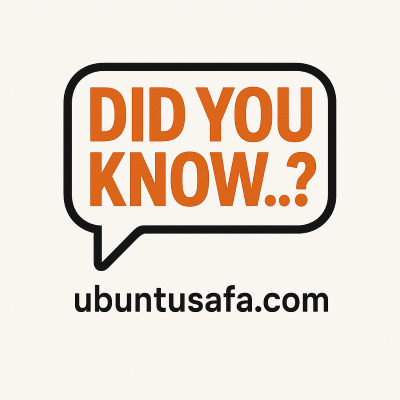Did You Know “How Africa’s Gold Still Fuels the Global Economy”
How Africa’s Gold Still Fuels the Global Economy
Africa has been known as the “Gold Continent” for centuries — from the legendary wealth of ancient empires like Ghana, Mali, and Songhai to today’s massive gold mining industries.
Yet, the story of African gold is not just about riches buried underground; it’s about how this precious metal continues to shape global markets, economies, and power dynamics today.
Africa’s Rich Gold Legacy-
For centuries, African gold attracted traders, explorers, and conquerors. The Mali Empire’s Mansa Musa famously showcased his empire’s gold wealth on his pilgrimage to Mecca in the 14th century, placing West Africa on the world map as a source of immense wealth. Gold fueled the rise of kingdoms, financed trade routes, and symbolized power.
Modern Gold Production in Africa
Today, Africa remains a major gold producer. Countries like:
South Africa — once the world’s largest producer, with famous mines like Witwatersrand
Ghana — “the Gold Coast,” rich in both alluvial and deep mines
Mali — home to large-scale gold mining projects
Tanzania, Burkina Faso, Zimbabwe, and others — significant gold producers
Gold mining is a major source of revenue, employment, and foreign exchange for these nations.
How African Gold Fuels the Global Economy
Global Supply Chains
African gold enters complex global supply chains, eventually becoming:
Jewelry worn worldwide
Electronics and smartphones (gold is an excellent conductor used in circuits)
Financial reserves and investment assets
Foreign Investment and Control
Much of Africa’s gold mining industry is operated or financed by multinational corporations headquartered in Europe, North America, and increasingly Asia. These companies:
Extract vast quantities of gold
Export most of it for refining and manufacturing abroad
Repatriate profits, often with limited benefit to local economies
Economic Impact on African Nations
Gold mining can boost economies through taxes and jobs, but challenges remain:
-Environmental degradation and social displacement
-Revenue leakages due to corruption and opaque contracts
-Unequal wealth distribution leaving many mining communities impoverished
-Gold’s Role in Financial Markets
Gold from Africa contributes to global reserves held by central banks and private investors, impacting:
-Currency stability and monetary policy
-Wealth preservation in times of economic uncertainty
The Challenges and Opportunities-
-Transparency and Fair Trade: Efforts like the Kimberley Process for diamonds have parallels in gold to reduce illegal mining and smuggling.
-Sustainable Mining Practices: Balancing economic benefits with environmental protection is crucial.
-Local Empowerment: Increasing African ownership and control over gold resources can boost development.
-Technology and Innovation: New mining technologies and better governance could improve outcomes.
Conclusion-
Africa’s gold is more than a mineral resource — it’s a link between continents, economies, and histories. While it continues to fuel the global economy, the challenge remains to ensure that the wealth generated benefits Africans themselves, helping to build sustainable prosperity across the continent.
Quote for Thought-
“Africa’s gold shines on the world stage, but its brightest future is in African hands.”
— Voices for Change
How Africa’s Gold Still Fuels the Global Economy
Africa has been known as the “Gold Continent” for centuries — from the legendary wealth of ancient empires like Ghana, Mali, and Songhai to today’s massive gold mining industries.
Yet, the story of African gold is not just about riches buried underground; it’s about how this precious metal continues to shape global markets, economies, and power dynamics today.
Africa’s Rich Gold Legacy-
For centuries, African gold attracted traders, explorers, and conquerors. The Mali Empire’s Mansa Musa famously showcased his empire’s gold wealth on his pilgrimage to Mecca in the 14th century, placing West Africa on the world map as a source of immense wealth. Gold fueled the rise of kingdoms, financed trade routes, and symbolized power.
Modern Gold Production in Africa
Today, Africa remains a major gold producer. Countries like:
South Africa — once the world’s largest producer, with famous mines like Witwatersrand
Ghana — “the Gold Coast,” rich in both alluvial and deep mines
Mali — home to large-scale gold mining projects
Tanzania, Burkina Faso, Zimbabwe, and others — significant gold producers
Gold mining is a major source of revenue, employment, and foreign exchange for these nations.
How African Gold Fuels the Global Economy
Global Supply Chains
African gold enters complex global supply chains, eventually becoming:
Jewelry worn worldwide
Electronics and smartphones (gold is an excellent conductor used in circuits)
Financial reserves and investment assets
Foreign Investment and Control
Much of Africa’s gold mining industry is operated or financed by multinational corporations headquartered in Europe, North America, and increasingly Asia. These companies:
Extract vast quantities of gold
Export most of it for refining and manufacturing abroad
Repatriate profits, often with limited benefit to local economies
Economic Impact on African Nations
Gold mining can boost economies through taxes and jobs, but challenges remain:
-Environmental degradation and social displacement
-Revenue leakages due to corruption and opaque contracts
-Unequal wealth distribution leaving many mining communities impoverished
-Gold’s Role in Financial Markets
Gold from Africa contributes to global reserves held by central banks and private investors, impacting:
-Currency stability and monetary policy
-Wealth preservation in times of economic uncertainty
The Challenges and Opportunities-
-Transparency and Fair Trade: Efforts like the Kimberley Process for diamonds have parallels in gold to reduce illegal mining and smuggling.
-Sustainable Mining Practices: Balancing economic benefits with environmental protection is crucial.
-Local Empowerment: Increasing African ownership and control over gold resources can boost development.
-Technology and Innovation: New mining technologies and better governance could improve outcomes.
Conclusion-
Africa’s gold is more than a mineral resource — it’s a link between continents, economies, and histories. While it continues to fuel the global economy, the challenge remains to ensure that the wealth generated benefits Africans themselves, helping to build sustainable prosperity across the continent.
Quote for Thought-
“Africa’s gold shines on the world stage, but its brightest future is in African hands.”
— Voices for Change
3 months ago

